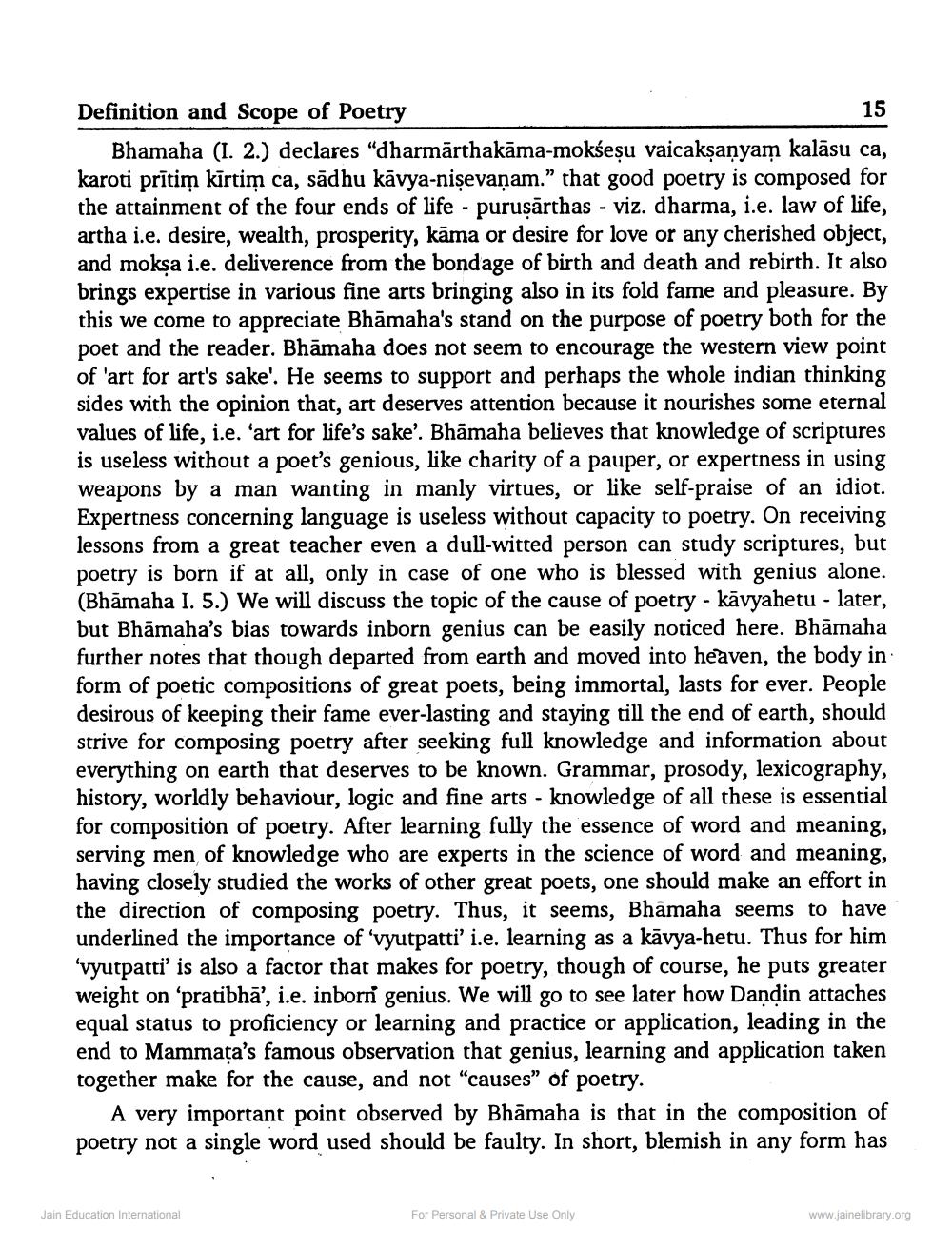________________
Definition and Scope of Poetry
15 Bhamaha (I. 2.) declares "dharmārthakāma-mokśeșu vaicakṣaṇyam kalāsu ca, karoti prītim kirtim ca, sādhu kāvya-nişevanam.” that good poetry is composed for the attainment of the four ends of life - puruṣārthas - viz. dharma, i.e. law of life,
i.e. desire, wealth, prosperity, kama or desire for love or any cherished object, and mokṣa i.e. deliverence from the bondage of birth and death and rebirth. It also brings expertise in various fine arts bringing also in its fold fame and pleasure. By this we come to appreciate Bhāmaha's stand on the purpose of poetry both for the poet and the reader. Bhāmaha does not seem to encourage the western view point of 'art for art's sake'. He seems to support and perhaps the whole indian thinking sides with the opinion that, art deserves attention because it nourishes some eternal values of life, i.e. 'art for life's sake'. Bhāmaha believes that knowledge of scriptures is useless without a poet's genious, like charity of a pauper, or expertness in using weapons by a man wanting in manly virtues, or like self-praise of an idiot. Expertness concerning language is useless without capacity to poetry. On receiving lessons from a great teacher even a dull-witted person can study scriptures, but poetry is born if at all, only in case of one who is blessed with genius alone. (Bhāmaha I. 5.) We will discuss the topic of the cause of poetry - kāvyahetu - later, but Bhāmaha's bias towards inborn genius can be easily noticed here. Bhāmaha further notes that though departed from earth and moved into heaven, the body in form of poetic compositions of great poets, being immortal, lasts for ever. People desirous of keeping their fame ever-lasting and staying till the end of earth, should strive for composing poetry after seeking full knowledge and information about everything on earth that deserves to be known. Grammar, prosody, lexicography history, worldly behaviour, logic and fine arts - knowledge of all these is essential for composition of poetry. After learning fully the essence of word and meaning, serving men of knowledge who are experts in the science of word and meaning, having closely studied the works of other great poets, one should make an effort in the direction of composing poetry. Thus, it seems, Bhāmaha seems to have underlined the importance of 'vyutpatti' i.e. learning as a kāvya-hetu. Thus for him 'vyutpatti' is also a factor that makes for poetry, though of course, he puts greater weight on ‘pratibhā', i.e. inborri genius. We will go to see later how Dandin attaches equal status to proficiency or learning and practice or application, leading in the end to Mammața's famous observation that genius, learning and application taken together make for the cause, and not "causes” of poetry.
A very important point observed by Bhāmaha is that in the composition of poetry not a single word used should be faulty. In short, blemish in any form has
Jain Education International
For Personal & Private Use Only
www.jainelibrary.org




